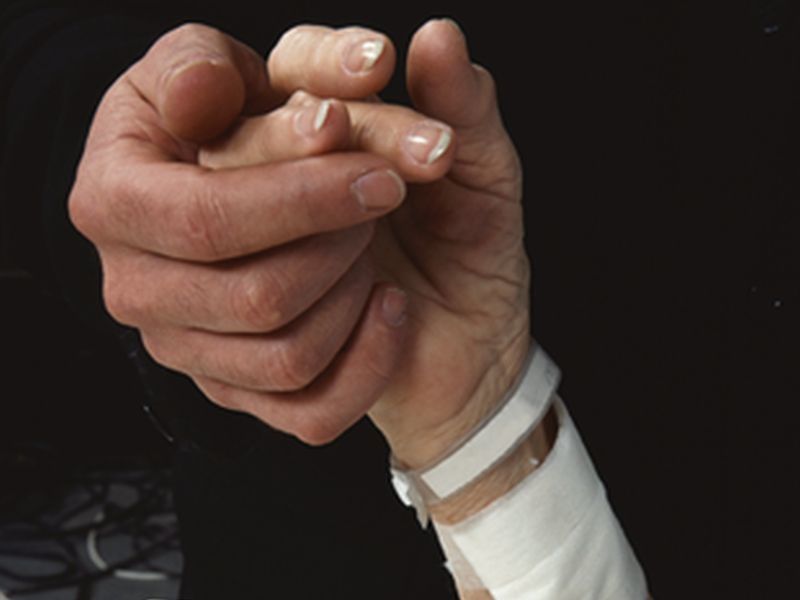
It’s a number many Americans have grimly expected but may still find hard to comprehend: Over one million of their fellow citizens killed by COVID-19.
“Today, we mark a tragic milestone: one million American lives lost to COVID-19,” President Joe Biden remarked in a speech posted Thursday morning on the White House website. “One million empty chairs around the dinner table. Each an irreplaceable loss. Each leaving behind a family, a community, and a Nation forever changed because of this pandemic. Jill and I pray for each of them.”
Biden ordered that U.S. flags be flown at half-staff Thursday in honor of those lost.
“As a Nation, we must not grow numb to such sorrow,” Biden said. “To heal, we must remember. We must remain vigilant against this pandemic and do everything we can to save as many lives as possible.”
The U.S. Centers for Disease Control and Prevention’s death tally for COVID-19 in the United States stood at 995,747 as of Thursday morning, but that number is expected to reach one million soon. A COVID fatalities count compiled by trackers at Johns Hopkins University puts the toll near 999,000.
The first fatal case reported to the CDC occurred in Washington state on Feb. 29, 2020, although more recent investigations now suggest that the first American deaths may have occurred in early January of that year.
For many experts who’ve tracked COVID-19’s relentless march through the population, it didn’t have to be that way.
Dr. William Schaffner is medical director of the National Foundation for Infectious Diseases. He pointed the finger at the early politicization of the pandemic by the Trump administration, citing mixed messages and incomplete data that kept many Americans from taking steps that might have saved lives.
Communication is crucial in a pandemic, Schaffner said, and the United States failed to issue clear explanations and instructions as COVID surged across the nation.
“It became very political,” Schaffner said. “In the very same press conference, you would have political leaders saying one thing and then public health leaders three minutes later saying something 180 degrees different. And that went on and on, causing an incredible amount of confusion and misinformation with which we’re still dealing today.”
“When the political leadership says in the same sentence that masks should be worn, but they’re not going to wear them, you really have a problem,” he said.
In the end, management of the crisis devolved to individual states, Schaffner noted. That set up a scenario resembling an out-of-sync orchestra.
In nations that fared better against SARS-CoV-2, “there’s a [political] conductor, we’re all playing off the same sheet of music”; something that Schaffner believes did not happen in the United States.
“Countries that had a national policy did better than those who fractionated their leadership,” he explained.
Scientists weren’t entirely blameless, either, Schaffner said.
“We epidemiologists were slow to realize that COVID was different from those other coronaviruses that jumped species to the human population,” he said. “They were hard to transmit, and we thought initially that COVID was similar. It turned out to be a very different virus. It was transmitted very readily. It had a lot of asymptomatic infection and spread very, very rapidly. It took us epidemiologists too long to recognize that.”
Another expert believes that the rapid advent and deployment of effective COVID-19 vaccines in 2021 could have been an opportunity to slow fatal COVID cases.
However, “the most significant aspect of the death toll is the fact that more deaths occurred after the vaccine was available than before,” noted Dr. Amesh Adalja, senior scholar at the Johns Hopkins Center for Health Security, in Baltimore.
“An extremely high proportion of deaths are vaccine-preventable and were, in effect, chosen or willful because people turned away from the vaccines and bought into fallacious misinformation and conspiracy theories,” Adalja said.
More information
Find out more about COVID-19 at the U.S. Centers for Disease Control and Prevention.
SOURCES: Amesh Adalja, MD, senior scholar, Johns Hopkins Center for Health Security, Baltimore; William Schaffner, medical director, National Foundation for Infectious Diseases, Bethesda, Md.; White House, May 12, 2022
Source: HealthDay

Leave a Reply